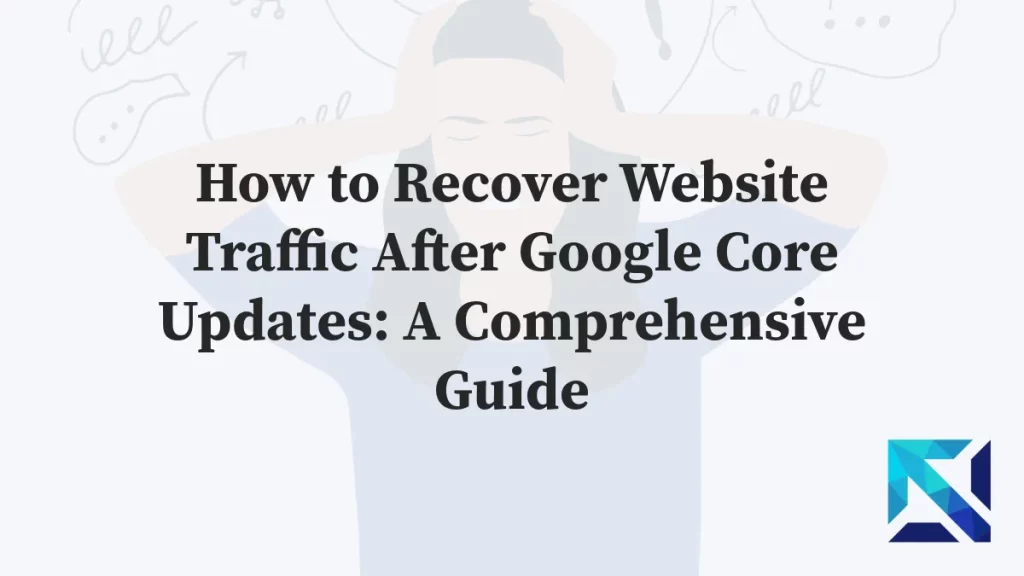Are you struggling to drive traffic to your landing page? Are you not seeing the conversions you expected? It may be time to focus on your landing page SEO.
Landing page SEO is crucial for driving organic traffic and converting visitors into customers. In this article, we’ll explore the importance of landing page SEO and provide tips for optimizing your landing page to dominate search results and drive conversions.
What is an SEO landing page?
An SEO landing page is a web page specifically designed to attract organic traffic from search engine results pages (SERPs). These pages are optimized with relevant keywords, meta descriptions, and other SEO techniques to rank higher in search results and drive targeted traffic to the website. The main goal of an SEO landing page is to convert visitors into customers by providing valuable information, products, or services that match the user’s search intent.
Why Is Landing Page SEO Important?
Landing page SEO is the process of optimizing your landing page to rank higher in search engine results pages (SERPs). It involves using keywords, meta descriptions, and other SEO techniques to improve your page’s visibility and attract more organic traffic.
Here are some reasons why landing page SEO is important:
Increased Visibility and Traffic
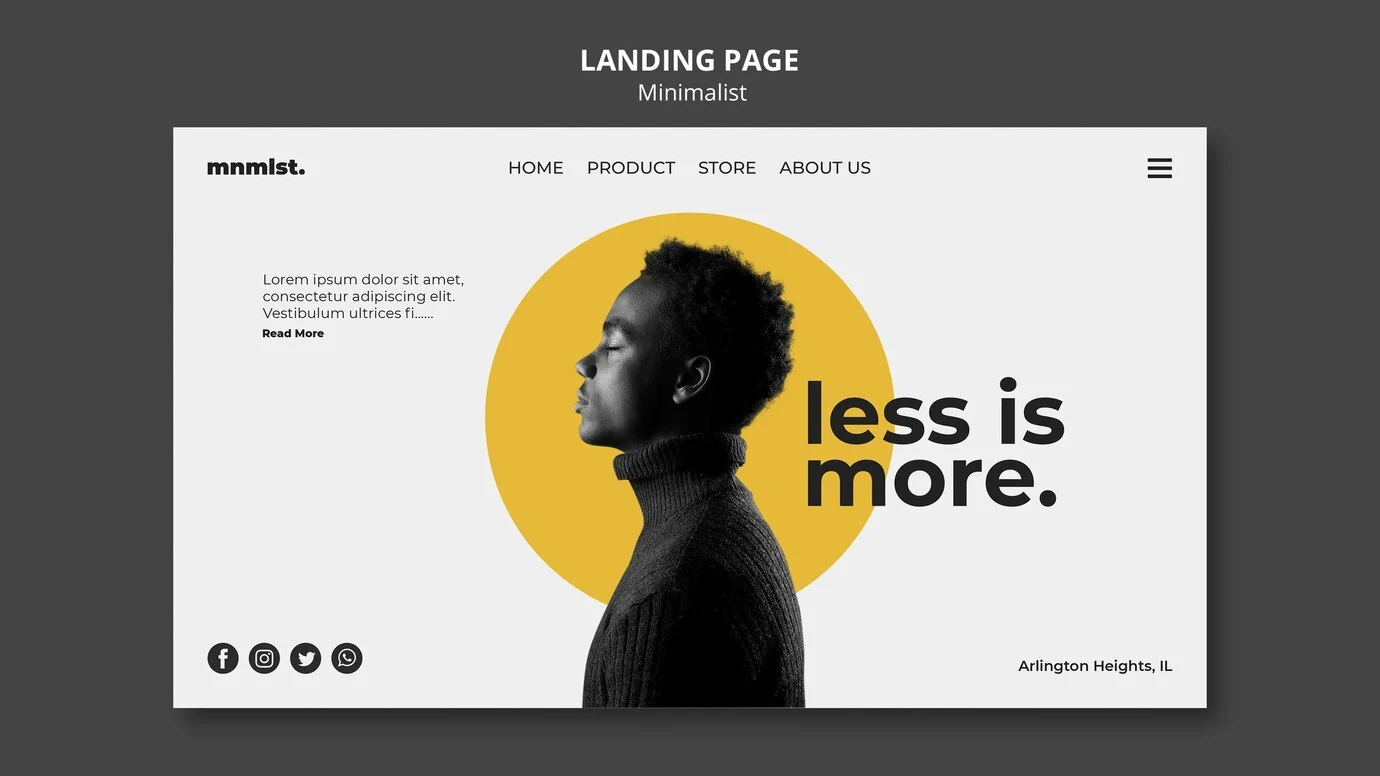
The higher your landing page ranks in search results, the more visible it is to potential customers. By optimizing your landing page for SEO, you can increase its visibility and attract more organic traffic.
Better User Experience
Landing page SEO also involves optimizing your page for user experience. This includes improving page load speed, mobile responsiveness, and overall usability. By providing a positive user experience, you can keep visitors on your page longer and increase the chances of conversion.
Higher Conversion Rates
When your landing page is optimized for SEO, it can attract more targeted traffic. This means that visitors are more likely to be interested in your product or service, increasing the chances of conversion. Additionally, a well-optimized landing page can also improve the overall user experience, making it easier for visitors to convert.
Is Landing Page SEO Optimisation Important?
Landing page SEO optimization is crucial to the success of your online presence. By optimizing your landing page for search engines, you can increase its visibility in search results and attract more organic traffic. You can increase the chances of converting visitors into customers. A well-optimized landing page can lead to more visibility, better user experience, and higher conversion rates. Therefore, focusing on landing page SEO optimization is crucial to increase traffic, improve user engagement, and ultimately increase conversions on your website.
I can give an example of this landing page SEO optimization as follows. You are going to advertise on Google and you need a landing page. If you do not create content that will attract the attention of your ad text and the audience you are targeting, both your ad performance will be low and your conversion rate will be low.
Tips for Optimizing Your Landing Page for SEO
Now that we understand the importance of landing page SEO, let’s explore some tips for optimizing your landing page to dominate search results and drive conversions.
1. Conduct Keyword Research
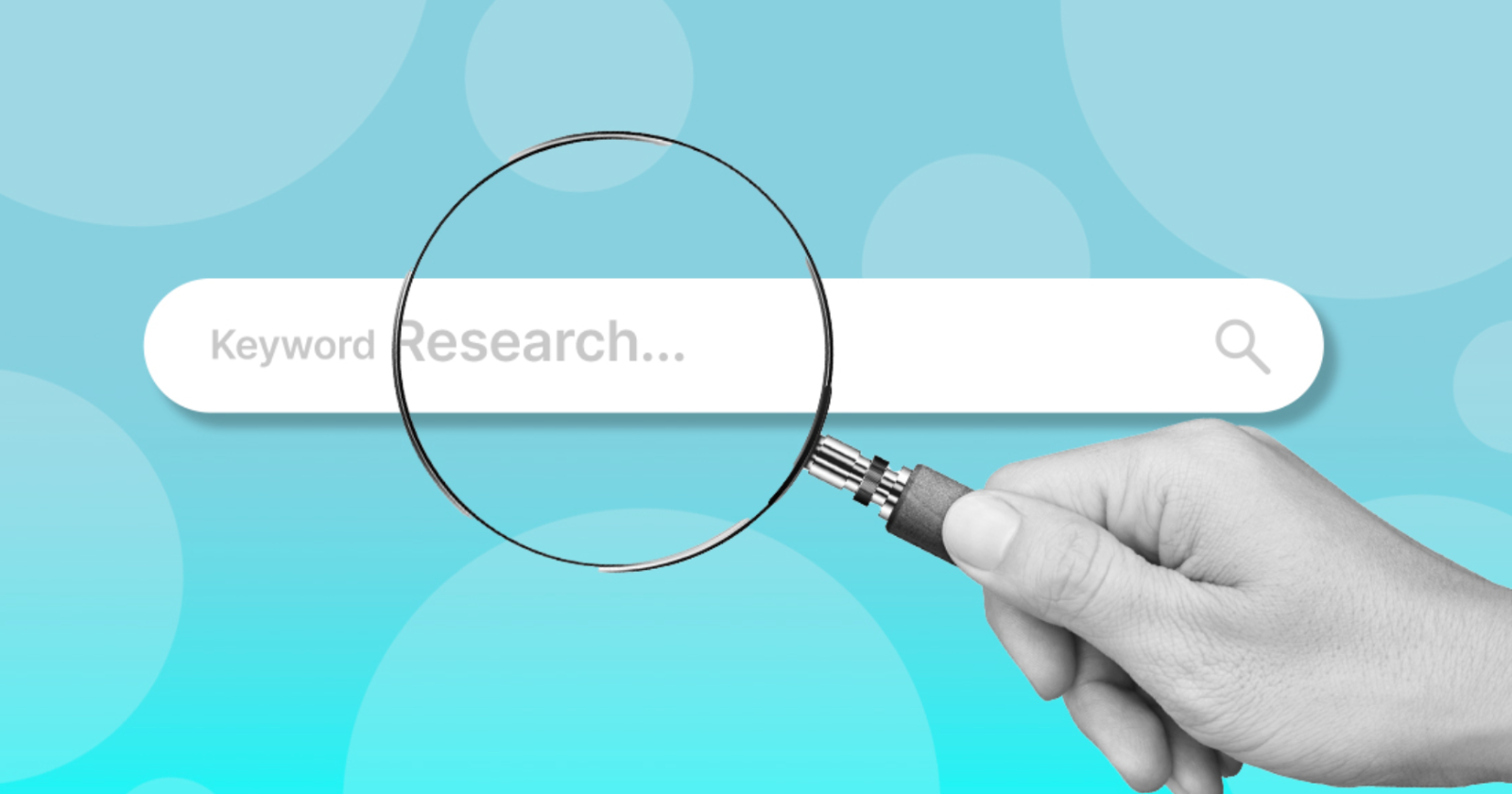
Keyword research is the foundation of any successful SEO strategy. It involves identifying the keywords and phrases that your target audience is using to search for products or services like yours.
Start by brainstorming a list of relevant keywords and phrases. Then, use keyword research tools like Google Keyword Planner or SEMrush to identify high-volume, low-competition keywords to target on your landing page.
2. Optimize Your Page Title and Meta Description
Your page title and meta description are the first things that users see when your landing page appears in search results. These elements should be optimized with your target keywords and provide a clear and concise description of your page’s content.
3. Use Header Tags
Header tags (H1, H2, H3, etc.) are used to structure your page’s content and make it easier for search engines to understand. Use your target keywords in your header tags to improve your page’s relevance and visibility in search results.
4. Optimize Your Images
Images are an important element of any landing page, but they can also impact your page’s SEO. Use descriptive file names and alt tags for your images, and compress them to improve page load speed.
5. Improve Page Load Speed
Page load speed is a crucial factor in both user experience and SEO. A slow-loading page can lead to high bounce rates and lower search engine rankings. Use tools like Google PageSpeed Insights to identify and fix any issues that may be slowing down your page.
6. Make Your Page Mobile-Friendly
With the majority of internet traffic coming from mobile devices, it’s essential to ensure that your landing page is optimized for mobile users. This includes using a responsive design, optimizing images, and making sure that all elements are easily clickable on a mobile device.
7. Use Internal and External Links
Internal and external links can improve your landing page’s SEO by providing context and authority to your content. Use internal links to connect to other relevant pages on your website, and external links to reputable sources that support your content.
8. Optimize for Local SEO
If your business has a physical location, it’s important to optimize your landing page for local SEO. This includes using location-specific keywords, creating a Google My Business listing, and getting listed on local directories.
9. Monitor and Analyze Your Results
Once you’ve implemented your landing page SEO strategy, it’s important to monitor and analyze your results. Use tools like Google Analytics to track your page’s traffic, bounce rates, and conversion rates. This will help you identify areas for improvement and make data-driven decisions for future optimizations.
Tips on How to Optimise SEO Landing Page Layout
When optimizing the layout of your SEO landing page, consider the following tips to improve user experience and search engine visibility:
- Clear Call-to-Action (CTA): Ensure that your CTA is prominent and easily visible to encourage user interaction and conversions.
- Responsive Design: Make sure your landing page is mobile-friendly and displays correctly on all devices to provide a seamless user experience.
- Content Hierarchy: Use header tags (H1, H2, H3) to structure your content logically and help search engines understand the importance of each section.
- Optimized Images: Use high-quality images with descriptive file names and alt tags to enhance user engagement and improve SEO.
- Fast Page Load Speed: Optimize your page load speed by compressing images, minifying CSS and JavaScript, and leveraging browser caching.
- Internal Linking: Include internal links to relevant pages on your website to improve navigation and distribute link equity throughout your site.
- External Linking: Link to authoritative external sources to provide additional value to your visitors and demonstrate credibility to search engines.
- Keyword Placement: Strategically place your target keywords in the page title, headings, meta description, and throughout the content for better SEO performance.
By implementing these tips, you can create a well-optimized SEO landing page that not only ranks higher in search results but also provides a positive user experience, leading to increased conversions and engagement.
Real-World Examples of Successful Landing Page SEO
Landing pages aren’t just about aesthetics; they’re SEO powerhouses when done right. Let’s dive into some successful examples that dominate search results and drive conversions:
1. Dropbox: Simplicity is King
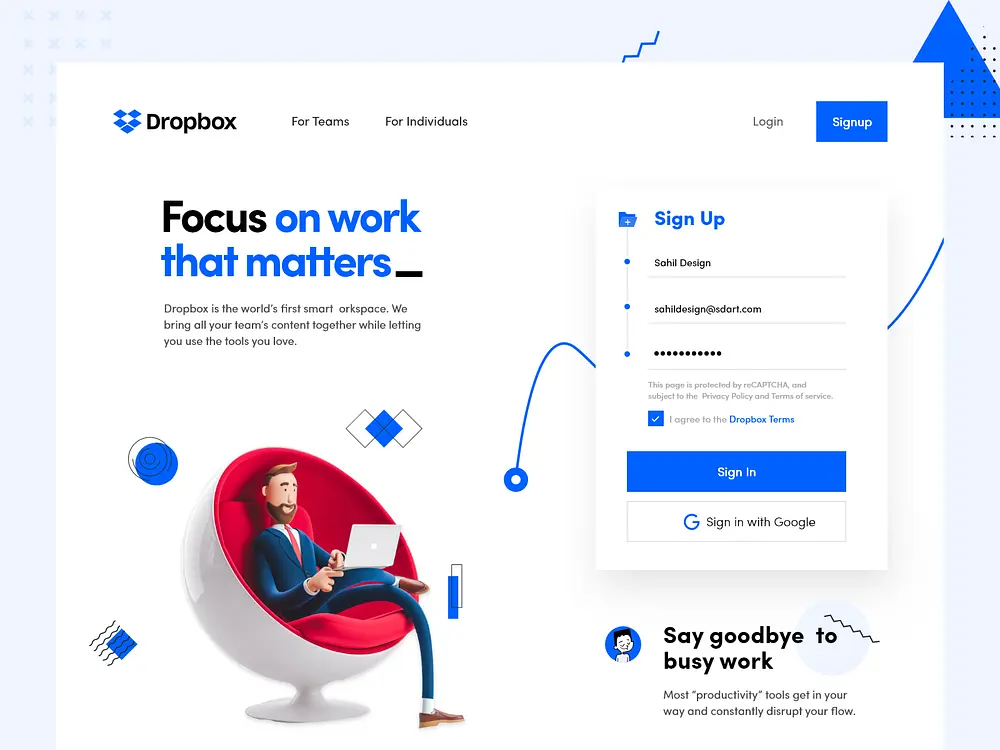
Target: New Dropbox users
SEO Powerhouse: Clean, clutter-free design with a clear value proposition: The landing page focuses on a single message – “Simplify your work. Get organized” – which is easy for users to understand and remember.
SEO Magic: Short, keyword-rich title and meta description: The title and description likely include relevant keywords such as “file storage,” “cloud storage,” or “file sharing,” making it more likely to appear in search results.
2.HubSpot: Offer Valuable Resources
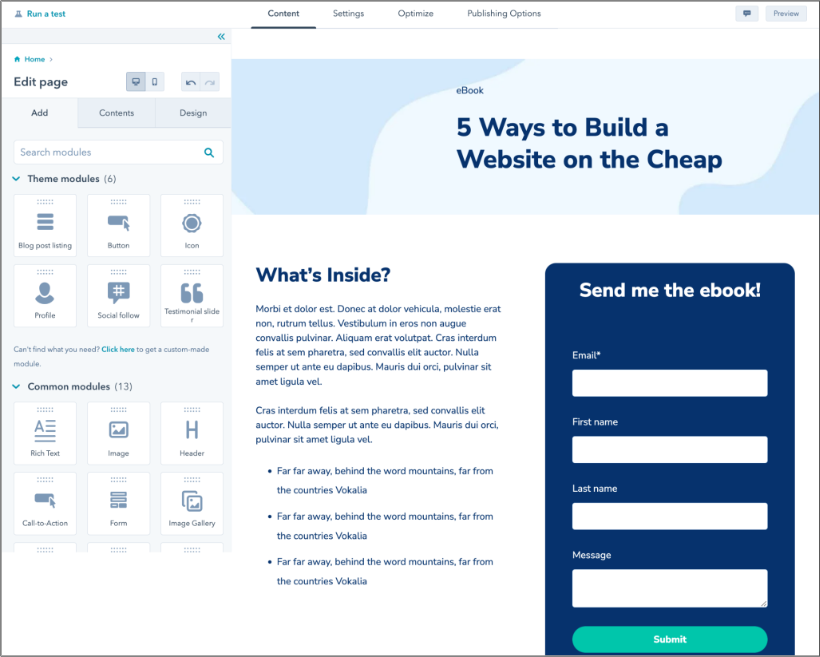
HubSpot’s landing page for their marketing software is another great example of effective SEO. The page title and meta description are optimized with relevant keywords, and the page includes internal and external links. The page also has a clear CTA for users to sign up for a free trial.
Target: Businesses interested in inbound marketing
SEO Powerhouse: Free downloadable resources like ebooks and webinars in exchange for contact information.
SEO Magic: Landing page title and description rich in relevant keywords like “inbound marketing guide” and “marketing automation.”
Conclusion
Landing page SEO is crucial for driving organic traffic and converting visitors into customers.
By following these tips and using real-world examples as inspiration, you can optimize your landing page to dominate search results and drive conversions.
Remember to continuously monitor and analyze your results to make data-driven decisions for future optimizations.
With a well-optimized landing page, you can attract more targeted traffic and increase your chances of conversion.
Conduct thorough keyword research to identify relevant terms with high search volume and low competition. Integrate these keywords strategically throughout your landing page content, including title tags, headings, and page copy.
Are landing pages bad for SEO?
No, landing pages are not bad for SEO. In fact, they can be very beneficial for SEO if optimized correctly. They help target specific keywords and user journeys, potentially boosting your overall website ranking.
Do landing pages affect SEO?
Yes, landing pages can positively affect SEO in a few ways:
Targeted Traffic: Attract users searching for specific keywords, improving relevance for search engines.
Conversions: Convert visitors into leads or sales, a positive signal for search engines.
Backlinks: High-performing landing pages can attract backlinks from other websites, boosting overall SEO.
How can I maximize my landing page visibility on search engine results?
Keyword stuffing (landing page) + strong title & description + fast loading & mobile-friendly = Search visibility!



